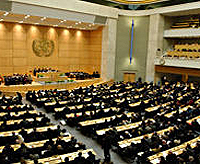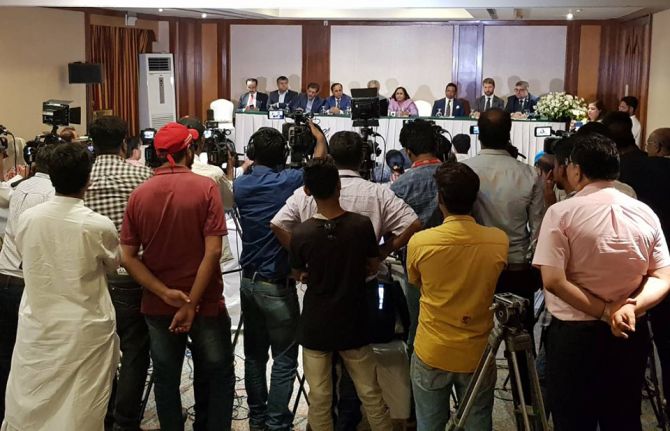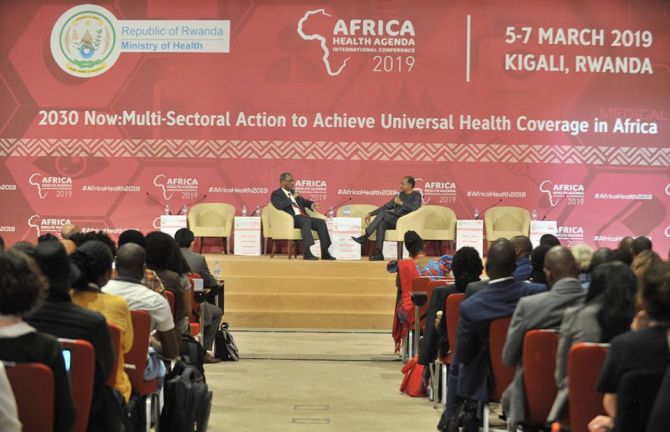
Feature Story
Sixty-second World Health Assembly to be dominated by A(H1N1)
18 May 2009
18 May 2009 18 May 2009
Photo (60th WHA)
Credit WHO/Peter Williams
This year’s World Health Assembly is set to focus considerable attention on the widespread outbreak of influenza A(H1N1), as Health Ministers and officials of more than 190 countries gather in Geneva from 18-22 May to discuss the most effective responses to the potential pandemic, including preparedness, access to vaccines and sharing of influenza viruses.
According to the latest World Health Organization (WHO) statistics, there are now 39 countries reporting a cumulative total of 8480 cases of A(H1N1) (17 May update). The virus represents a serious and growing health threat. WHO Director-General Dr Margaret Chan has called for “global solidarity” in the face of this unpredictable threat and the sixty-second World Health Assembly will provide an opportunity for such solidarity.
The World Health Assembly, convened by the Director-General of the World Health Organization, will also follow its broad remit to review progress and set new priorities for the WHO. Other issues to be examined will include primary health care and health system strengthening; exploring the social determinants of health and monitoring the achievement of the health-related Millennium Development Goals. There will also be room for the discussion of the programme budget for the next two years and internal management matters.
A key element of the meeting is the consideration of the revised version of the Medium-term strategic plan 2008-2013 which has 13 objectives including the reduction of the health, social and economic burden of communicable disease; mitigating the health consequences of emergencies, disasters, crises and conflicts; ensuring improved access, quality and use of medical products and technologies, and challenging the spread of AIDS, tuberculosis and malaria.
Delegates hope to build on the success of previous meetings. For example, in 2008 the assembly endorsed a public health, innovation and intellectual property strategy which promoted new approaches to drug research and development and championed the removal of barriers, enhancing access to medicines, especially for less developed nations. The gathering also adopted a resolution urging Member States to take decisive action to address the health impacts of climate change.
It is clear that the World Health Assembly is expected to explore a complex array of issues that transcend the sphere of health, touching on and interconnecting with a broad range of other sectors with the aim of mounting an effective challenge to global health threats.
During the week, UNAIDS Executive Director Michel Sidibé will participate in a range of side events including meetings with national ministers of health from around the world.
Right Hand Content
Cosponsors:
Feature stories:
Sixty-first World Health Assembly (19 May 2009)
Influenza A (H1N1) and HIV infection (01 May 2009)
Multimedia:
View photo gallery of opening day of World Health Asembly
External links:
Complete documentation for the sixty-second World Health Assembly
Key issues for the World Health Assembly 2009
International Health Regulations
Primary health care
Social determinants of health
Millennium Development Goals (MDGs)
Considerations on influenza A(H1N1) and HIV infection - WHO guidance note
More on influenza A(H1N1)



